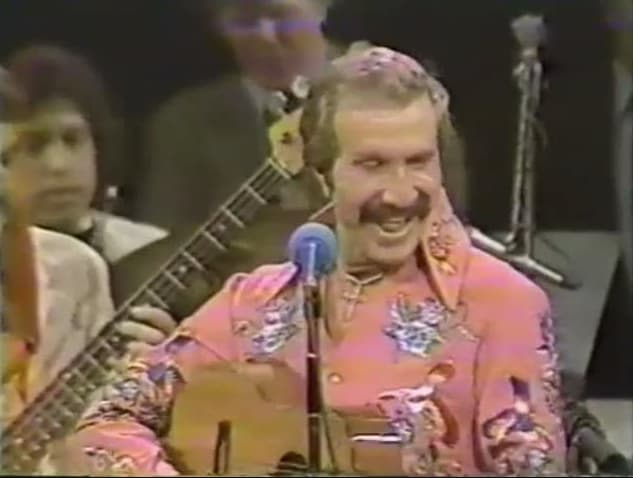
The Last Time Marty Robbins Sings ‘Love Me’ on the Grand Ole Opry Stage: A Nostalgic Farewell to Love
In the rich tapestry of American country music, few voices resonate with the same depth and sincerity as that of Marty Robbins. Known for his velvety tones and narrative prowess, Robbins has long been a pillar of the genre, weaving stories that capture the essence of love, loss, and the human experience. One such poignant moment in his illustrious career was his final performance of “Love Me” on the hallowed stage of the Grand Ole Opry. This performance not only marked the end of an era but also encapsulated a lifetime of musical storytelling.
When Marty Robbins took to the stage that evening, there was an air of reverence in the audience, a collective holding of breath as they prepared to witness what would be his last serenade of “Love Me.” This song, while perhaps not as commercially celebrated as some of his other hits, holds a special place in the hearts of those who cherish genuine expressions of emotion. It speaks to the universal longing for affection and understanding, themes that are timeless and resonate deeply with listeners across generations.
The Grand Ole Opry, a venue steeped in tradition and history, was the perfect backdrop for this final act. As Robbins strummed his guitar and sang with a voice seasoned by years of both triumphs and trials, one could almost see the ghosts of country legends past nodding in approval. This wasn’t just a performance; it was a heartfelt goodbye from an artist who had given so much to his audience. Each note he sang seemed to linger in the air a little longer, as if savoring its last dance through the rafters.
Behind this touching moment lies a story woven with threads of nostalgia and reflection. “Love Me,” at its core, is about vulnerability and yearning—a plea for connection that echoes the sentiments of those who have ever loved deeply and felt profoundly. In performing this song one last time at such an iconic venue, Robbins offered not just a piece of music, but a piece of himself—a farewell gift to his fans who had supported him throughout his career.
While “Love Me” may not have climbed to the top of the charts upon its initial release, its impact cannot be measured solely by numbers. Instead, its significance is found in the way it captures the tender fragility of human emotions. For older fans who may recall hearing this song during pivotal moments in their own lives, its notes are likely intertwined with memories—of dances under starlit skies or quiet moments shared with loved ones.
As we reflect on Marty Robbins’ final bow at the Grand Ole Opry, we’re reminded of music’s power to transcend time and space. His legacy is not just in his discography but also in these intimate performances that leave an indelible mark on our hearts. In listening to “Love Me,” we are invited to pause and remember our own stories, those small yet significant moments that define our lives.
In conclusion, Marty Robbins’ last rendition of “Love Me” stands as a testament to his enduring influence and the timeless appeal of heartfelt music. It invites us all—especially those who have traveled life’s winding roads—to reminisce about love’s profound simplicity and to cherish those fleeting moments when we felt truly connected to another soul.